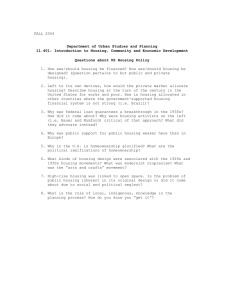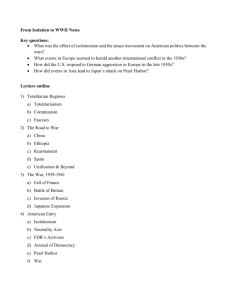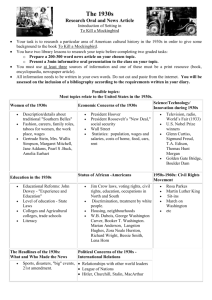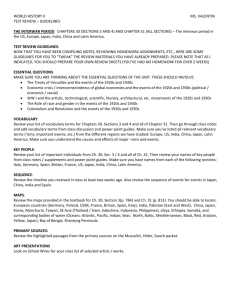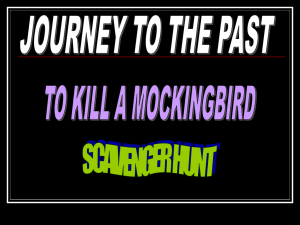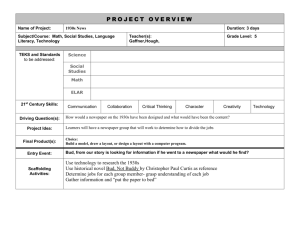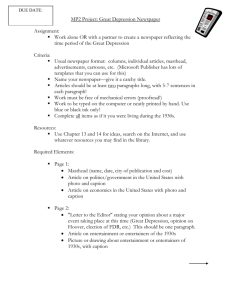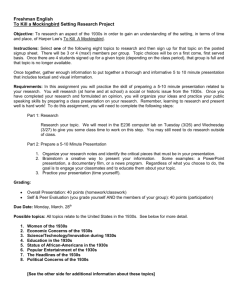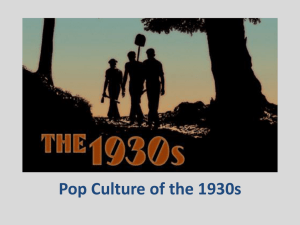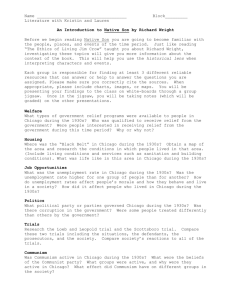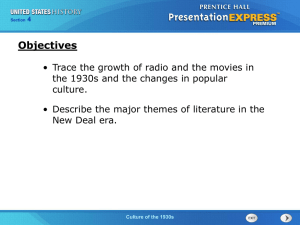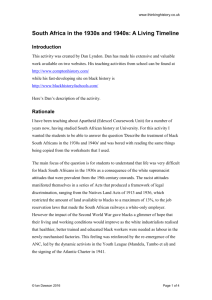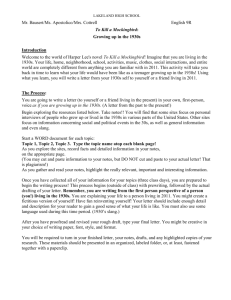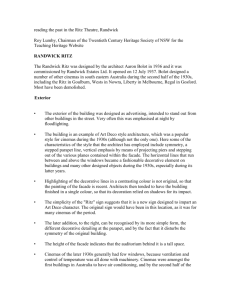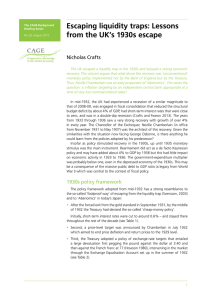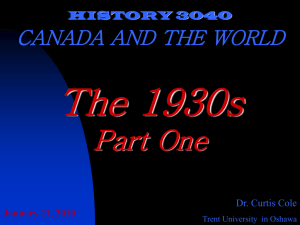To Kill a Mockingbird - Doral Academy Preparatory
advertisement
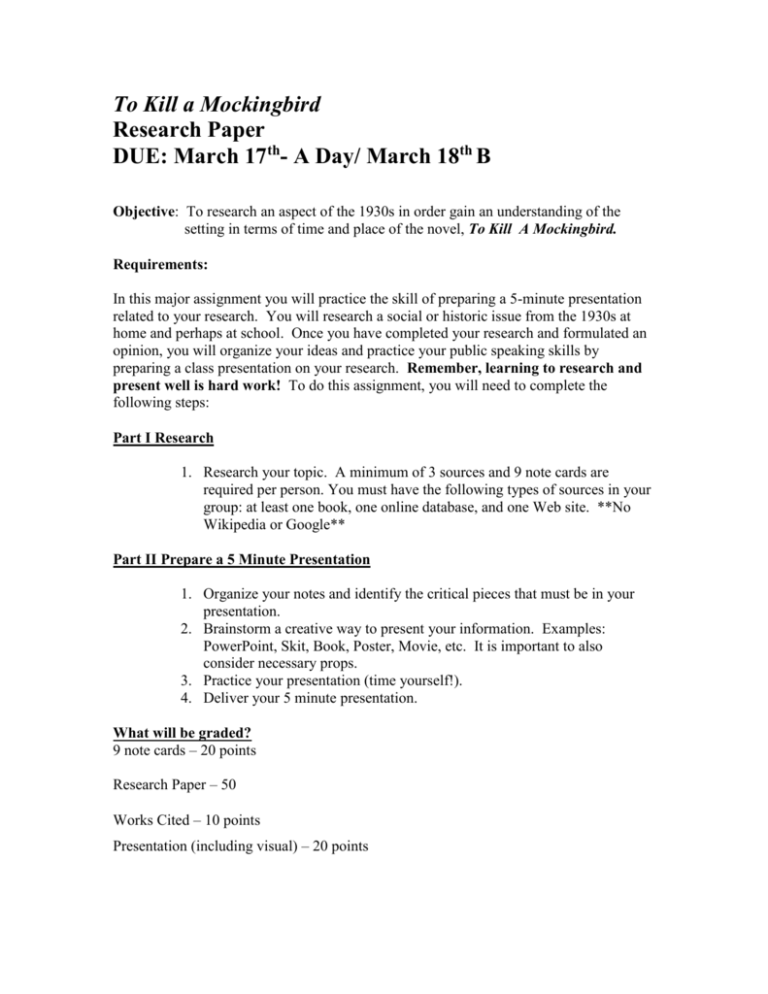
To Kill a Mockingbird Research Paper DUE: March 17th- A Day/ March 18th B Objective: To research an aspect of the 1930s in order gain an understanding of the setting in terms of time and place of the novel, To Kill A Mockingbird. Requirements: In this major assignment you will practice the skill of preparing a 5-minute presentation related to your research. You will research a social or historic issue from the 1930s at home and perhaps at school. Once you have completed your research and formulated an opinion, you will organize your ideas and practice your public speaking skills by preparing a class presentation on your research. Remember, learning to research and present well is hard work! To do this assignment, you will need to complete the following steps: Part I Research 1. Research your topic. A minimum of 3 sources and 9 note cards are required per person. You must have the following types of sources in your group: at least one book, one online database, and one Web site. **No Wikipedia or Google** Part II Prepare a 5 Minute Presentation 1. Organize your notes and identify the critical pieces that must be in your presentation. 2. Brainstorm a creative way to present your information. Examples: PowerPoint, Skit, Book, Poster, Movie, etc. It is important to also consider necessary props. 3. Practice your presentation (time yourself!). 4. Deliver your 5 minute presentation. What will be graded? 9 note cards – 20 points Research Paper – 50 Works Cited – 10 points Presentation (including visual) – 20 points Possible topics: All topics relate to the United States in the 1930s. Suggested topics are listed, but more should be sought out. Women of the 1930s Fashion, careers, family roles, taboos for women, the work place, wages Gertrude Stein, Mrs. Wallis Simpson, Margaret Mitchell, Jane Addams, Pearl S .Buck, Amelia Earhart Education in the 1930s Educational Reforms: John Dewey "Experience and Education" Level of education State Laws Literacy Economic Concerns of the 1930s President Hoover President Roosevelt’s "New Deal," social security Wall Street Statistics: population, wages and salaries, costs of home, food, cars, rent Status of African -Americans in the 1930s Jim Crow laws, voting rights, civil rights, education, occupations in North and South Discrimination, treatment by white people. Education for African American Great Depression, New Deal effects on African Americans. W.B. Dubois, George Washington Carver, Booker T. Washington. Marian Anderson, Langston Hughes, Zora Neale Hurston, Richard Science/Technology/ Innovation during 1930s Television, radio, World’s Fair (1933) U.S. Nobel Prize winners Glenn Curtiss, Sigmund Freud, T.A. Edison, Thomas Hunt Morgan Golden Gate Bridge, Boulder Dam Popular Entertainment of the 1930s Movies, Hollywood Stars Dance Radio Programs Popular music: "The Cotton Club" Shirley Temple, Charlie Chaplin, Benny Goodman, Glenn Miller, Judy Garland Wright, Bessie Smith, Lena Horn The Headlines of the 1930s: Political Concerns of the 1930s What and Who Made the International Relations News Sports, disasters, Relationships with other "big" events, 21st world leaders amendment, crime League of Nations Howard Hughes, Hitler, Churchill, Stalin, Charles Lindbergh, MacArthur Knute Rockne, Joe Louis, John Dillinger, George Eastman The "Big6™" is copyright © (1987) Michael B. Eisenberg and Robert E. Berkowitz. For more information, visit: www.big6.com Criteria: Proper Heading Page numbers 4 – 6 pages Double spaced Times New Roman Includes direct quotes and parenthetical citations APA format Works Cited page Intro, body, conclusion
